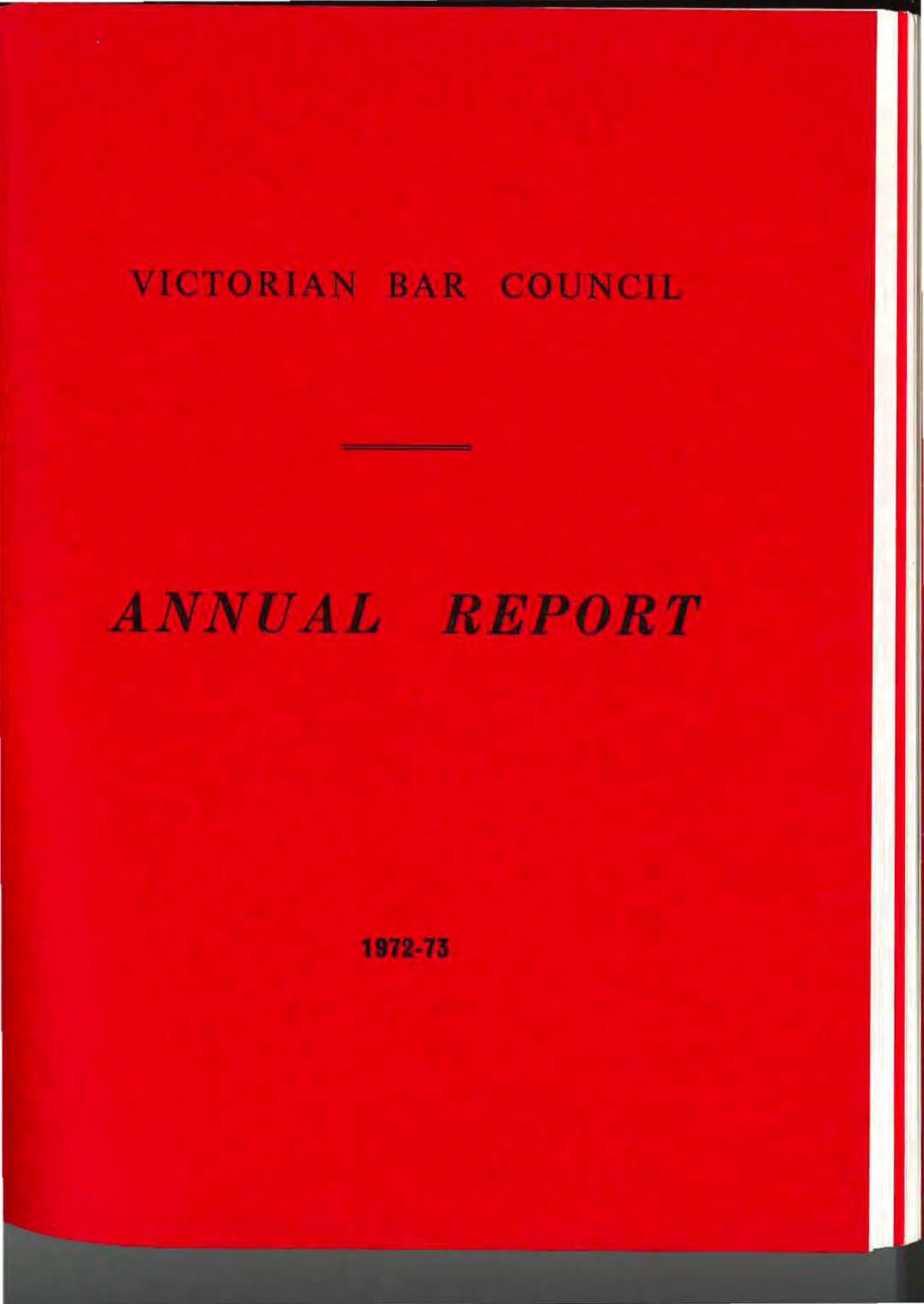





Annual Election
To be presented to the Annual General Meeting of the Victorian Bar to be held on 25th September, 1973 at 5 p.m. in the Common Room, Owen Dixon Chambers, 205 William Street, Melbourne.
In September 1972, the following persons were elected:
Counsel of not less than 12 years' standing.
Sir James Tait Q.C., Messrs. R. E. McGarvie Q.C., W. O. Harris Q.C., R. K. Fullager Q.C., D. P. Whelan Q.C., K. H. Marks Q.C., H. Storey Q.C., D. M. Dawson Q.C., L. S. Lazarus Q.C., F. X. Costigan and F. P. Walsh.
Counsel of not less than 6 nor more than 15 years' standing
Messrs. J. L. Sher, M. J. L. Dowling, C. W. Porter and A. R. Castano
Counsel of not more than 6 years' standing.
Messrs. P. C. Heerey and A. Chernov.
Special Election
Ex Officio Members
Officers of the Bar Council
Registrar
Administrative Officer

In October 1972 the number of members on the Council was increased by one. The member was to be of counsel of not more than six years' standing and Mr. C. S. Keon-Cohen was elected.
September - Decembe.r 1972.
Senator the Honourable I. J. Greenwood, Q.C., M.P. (Attorney-General of the Commonwealth of Australia)
December 1972 - September 1973.
Senator the Honourable L. K. Murphy Q.C., M.P. (Attorney General of the Commonwealth of Australia)
September 1972 - May 1973.
The Honourable Sir George Reid, Q.C., M.L.A. (Attorney-General for the State of Victoria).
Chairman Vice-Chairman
Honorary Treasurer
September 1972-June 1973
August 1973-September 1973
June 1973-August 1973
Assistant to the Honorary Treasurer
Honorary Secretary
September 1972-March 1973
March 1973-September 1973
Assistant Honorary Secretary
September 1972-March 1973
March 1973-September 1973
Mr. D. E. Edwards
Miss D. M. Brennan
Mr. W. O. Harris Q.C.
Mr. R. E. McGarvie Q.C.
Sir James Tait Q.C.
Mr. F. P. Walsh
Mr. F. P. Walsh
Mr. P. C. Heerey
Mr. H. R. Hansen
Mr. A. Chernov
Mr. M. B. Phipps




Bar Clerking £9mmittee
Social & COriiiTiOn Room
Finance
Wine CUl2board Committee
Accommoda tion

Reading Committee


The following Standing Committees were appointed:
Messrs. Dawson Q.C. (Chairman), McGarvie Q.C., Fullagar Q.C., Whelan Q.C., Sher and Chernov.
Messrs. L. S. Lazarus Q.C. (Chairman), Jenkinson Q.C., Dwyer, T. H Smith and Heerey.
Messrs. Storey Q.C. (Chairman), D. R. Meagher, Hansen, Willee and Hassett.
Messrs. Griffith Q.C. (Chairman), Tadgell, Ormiston, Black, T. H. Smith, Hall, J V. Kaufman, Ahearne, D. M. Byrne, Hansen, Brear and Sundberg; later Hayes.
Mr. Griffith Q.C.
Messrs. Storey Q.C. (Chairman), Costigan, Walsh and Porter.
Messrs. Marks Q.C. (Chairman), L. S. Lazarus Q.C., Costigan, Walsh and Castan with the Chairman and Vice-Chairman of the Bar Council as ex officio members.
Messrs. Dowling (Chairman), Tolhurst, D. M. Bennett, D. J. Ross and Harper.
Sir James Tait Q.C. (Chairman), Walsh and Castano
Messrs. Tolhurst, O'Sullivan and Crossley.

Messrs. Berk e ley Q.C. (Chairman), Emery, Liddell, Forsyth, Mandie, Gurvich and Phipp s a nd the Chairman and Vice-Chairman of the Bar Council as ex officio members.
Messrs. Storey Q.C. (Chairman), Ormiston, Cullity, W. R. White and Loewenstein.
Joint Standing Committee (with the President & Chairman)
Messrs. Harris Q.C. and McGarvie Q.C.
Joint Consultative Committee on Fees and Costs
Messrs. McGarvie Q.C., Walsh and Sher.
Joint Standing Committee on County Court Practice & Procedure
Messrs. Rendit, Fagan and Heerey.
Joint Standing Committee on Magistrates' Courts
Messrs. Keon-Cohen, R. J. Johnston and R. M. Read.
Matrimonial Causes:
Juries:
Crime :
Causes:
Liquor Control:
Workers' Compensation:
County Court:
Magistrates' Court:
Industrial Law:
Town Planning and Local Government:
Taxation Committee:
Floor Committees:
Messrs. L. S. Lazarus Q.C. (Chairman), Asche Q.C., Spence, Fogarty and Cantwell.
Messrs. Marks Q.C. (Chairman), Thomson Q.C., Ravech, Cullity and Hase.
Messrs. Sher (Convenor), J. W. Galbally Q.C., A. E. Dixon, J. H. Phillips and Bourke.
Messrs. Dowling (Convenor), Brusey Q C., Berkeley Q.C , Ormiston and Forsyth
Messrs. O'Callaghan (Convenor), Campton, K. Coleman and Bourke.
Messrs. Rendit (Convenor), Ellis, Magehnis, Vincent and Bingeman.
Messrs. Heerey (Chairman), Rowlands, Shatin, Porter and Hansen.
Messrs. Chernov (Chairman), Radford, R. M. Read, Richter and a'Beckett.
Messrs. Dowling (Convenor), Keely Q.C., Northrop Q.C., K. D. Marks, Maddern and Ryan.
Messrs. Porter (Convenor), Gifford Q.C., Gobbo Q.C., Buckner and Rowlands; later Dowling, Campton, G. McD. Harris and Heerey.
Messrs. Castan (Convenor), Webb Q.C., Brusey Q.C., Forsyth and Spry.
Co-ordinator of Floor Committees: Me. L. S. Lazarus Q.C.
Directors of Barristers' Chambers Limited
Barristers' Superannuation Fund Trustees
Law Council of Australia Executive
Australian Bar Association Council
Chief Justice's Law Reform Committee
Sir James Tait Q.C. (Chairman), Messrs. Harris Q.C., McGarvie Q.C., Webb Q.C. (to December 1972), Hulme Q.C. (from September 1972), Batt and Forsyth (from March 1973).
Me. Harris Q C. (Chairman), Sir James Tait Q.C., Messrs. Griffith Q C. and Dawson Q C. Honorary Secretary - Mr_ Jordan.
Mr. Harris Q C.
Messrs. Harris Q.C. and McGarvie Q.C.
Messrs. Storey Q.C., L. S. Lazarus Q.C. and Heerey.

Chief Justice's Committee
Chief Justice's SURreme Court Ubrary Committeecouncil of Law §orting
LegaJ Aid CommitteeAppeaJ Costs Board -
Victorian COUllCii ofProfessionscouncil of LegaJ Education Board of Examiners
Legal Education Committee
Mr. Whelan Q.C.
Messrs. Griffith Q.C., Rendit and D. Graham.
Sir James Tait Q.C. and Mr. Bradshaw.
Messrs. Beach Q.C. (to December 1972), King Q.C., Berkeley Q.C. (to December 1972) and Furness (to June 1973); later Paterson Q.C. (from December 1972), Kendall (from Deoember 1972) and Tolhurst (from June 1973).
Mr. L. S. Lazarus Q.C.
Messrs. Whelan Q.C. and Ormiston.
Messrs. Storey Q.C., Goldberg and Chernov.
Messrs. Young Q.C. (to December 1972), Jenkinson Q.C., Storey Q.C. (from January 1973) and Frederico.
Messrs. Storey Q.C. and Goldberg (alternate).
Mr. Spence.
Faculty of Law
Messrs. McGarvie Q.C. and Merralls. Melbourne UniversityBar Council Nominees


Faculty of Law - Mr. Paterson Q.C. Monash University
Sir Leo Cussen His Honour Judge Ogden and Mr. Lloyd Q.C. Institute
Standing Committee
Messrs. Keely Q.C., Magennis and Rendit. Compensation Q2ard

M!orncy General's
Mr. R. M. Read Party on Act Rules
Viet Aboriginal Mr. O'Bryan Q.C. &..ega! Service
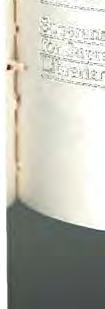
Fund M H Q C r. ogg
During 1972-73, the Bar Council appointed a large number of ad hoc committees. These included four joint committees with the Law Institute of Victoria, one to prepare a submission to the National Rehabilitation and Compensation Scheme Committee of Inquiry, another to pre pare a submission on legal aid to the Committee of Enqui ry into Poverty, anot her on compulsory blood alcohol tests and another on the provision o f legal aid in criminal matters by the Public Solicitor.
In addition, some thirty other ad hoc committees were set up to deal with matters of Bar practice and law reform.
The following gentlemen are Honorary Life Members of the Victorian Bar: The Rt. Hon. Sir Robert Menzies, K.T., C.H., Q.C.
Sir James Tait, Q.C.
Mr. Louis Voumard, Q.C.
During the period from 1st September 1972 to 31st August 1973 the Council met on 34 occasions.
Under Rule 39, the Council fixed the following annual subscriptions for members of the Bar for the period 1st September 1972 to 31 st August 1973:

His Honour Judge Mitchell on the 8th March 1973; Mr. John Lurye on the 21st March 1973 ; His Honour Judge Woinarski on the 30th May 1973; Sir Eugene Gorman, K.B.E., M.C., Q.C. on the 19th July 1973 and Mr. Marcus Hayman on the 20th July 1973.
In September 1972, the Honourable Mr. Justice Smith was appointed Acting Chief Justice of the Supreme Court. His Honour was Acting Chief Justice until the Chief Justice returned from leave in February 1973.
In November 1972 Mr. B. F. McNab was appointed a Judge of the County Court.
In December 1972 His Honour Judge Norris was appointed a-Judge of the Supreme Court of Victoria.
In February 1973 His Honour Judge Dunn was apPOinted a Judge of the Supreme Court of Victoria and Mr. G. 1. Samuels Q.C. was appointed a Judge of the Supreme Court of New South Wales and Mr. K. Coleman was apPOinted a Judge of the County Court.




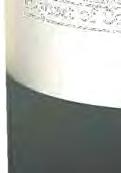
In April 1973 Mr. P. Murphy Q.C., was appointed a Judge of the Supreme Court of Victoria.
In June 1973 Mr. P. H. N. Opas Q.C. was appointed Chairman of the Environment Protection Appeal Board and Mr. A. J. Scurry was appointed to be the Crimes Compensation Tribunal.
In August, Mr. D. M. Bennett was appointed Chairman of the Advisory Board on Publications.
New Year's Honours' List:
Sir Douglas Little - Knight Bachelor.
Queen's Birthday Honours' List:
The Honourable Mr. Justice Sweeney - Companion of the British Empire.
In April, the Vatican conferred on the Honourable Mr. Justice Sweeney the Honour of Knight Commander of the Order of st. Gregory the Great.
In August, the Republic of Italy conferred on Mr. J. A. Gobbo Q.C. the Honour of Commend at ore dell'Ordine "AI Merito della Republica Italiana".
Messrs. L. S. Lazarus, K. J. A. Asche, J. D. Davies, H. C. Berkeley and P. J. Kenney (N.S.W.).
During 1972 the Bar assembled to welcome the Honourable Sir Anthony Mason, K.B.E. to the High Court of Australia, the Honourable Mr. Justice Norris to the Supreme Court and his Honour Judge McNab to the County Court.

During 1973 the following were welcomed: the Honourable Mr. Justice Dunn and the Honourable Mr. Justice Murphy to the Supreme Court, the Honourable Mr. Justice Moore as President of the Commonwealth Conciliation and Arbitration Commission and Honour Judge Coleman to the County Court. On each occasion the Chairman made an address of welcome on behalf of the Bar.
In May 1973 the Chairman and members of the Bar attended a Farewell to the Honourable Sir Richard Kirby on his retirement as President of the Commonwealth Conciliation & Arbitration Commission.
Between 7th September 1972 and 31st August 1973 the following 39 persons signed the Roll of Counsel:


Messrs. P. R. A. Gray, K. Wheelahan, Professor C. G. Weeramantry, Messrs. P. N. Wikrama, T. I. Casey, M. Rozenes, D. E Gray, H. R. Hallensteill, T. Schwarz, R. E. Wortley, D. I. Habersberger, G. D Johnstone, R. McK. Robson, D. B. Maguire, R. C Webster, D. G Shaw, K. Evans, M. J. O' Brien, M. MUn2, J. Gullaci, 1. G. Sutherland, P. R . Hayes, L. CriSp, J. P. Leckie, P. 1. Kennon, T. C. L. Morris, Miss B. A. Cotterell , Messrs. C. Cairns, R. L. Van de Wiel, C Slim, D. G. lust, G. C. Hicks, A. Parkinson, P. C. Dane, R. F. PunshoD , B. B. Braun , 1. D. McIvor, C. T. H. Chessun and G. Roche.
Mr. B. J. Shaw.




Messrs. B. M. Snedden, P.C., Q.C., W. K. Nicholl, Miss M. Rosenbaum, Mr. R. A. Bidstrup Q.C.
Messrs. J. N. Bryson, M. J. Hawkins, J. D. Little, Mrs. P. D. Bisley, Messrs. I. H. Hall, B. J. Moore, M. Salvaris and G. J. Z. Levine.
+ 24
Counsel in active practice* 396 428 + 32
* i.e. Counsel keeping chambers in Victoria, but not including Crown Prosecutors or Parliamentary Counsel.
I. The year 1972-1973 has been a period of great change for the Bar. Changes have taken place in the conduct of Bar affairs, in matters of Bar practice, in Bar facilities, and, it is believed, generally in the outlook of the Bar and the Bar Council.
2. The first significant feature of change in relation to the conduct of Bar affairs to which attention should be drawn, has been in the extent to which junior counsel of under six years' standing have participated in these matters. There are about 170 of such counsel.
Instead of two members of the Council being elected from this part of the Bar, there are now three, as a result of the amendment to Counsel Rules on the 26th September 1972. The two who were burdened with the offices of Honorary Secretary and Assistant Honorary Secretary are now free from those duties, which have been assumed by two counsel who are not members of the Council. One of these is of less than six years ' standing.
A Young Barristers' Committee has been set up. Its members are all counsel of under six years' standing (except for the Vice Chairman of the Counci1iwho is Chairman of the Committee). The Committee has met to consider matters of particular concern to the junior Bar and to make recommendations to the Bar Council. It has also convened forums for the general discussion of issues affecting the Junior Bar.
As far as possible, the Bar Council has endeavoured to include junior counsel who have come to the Bar within the last six years on the numerous sub-committees it has appointed to deal with specific matters.
3. The second feature relating to the conduct of Bar affairs to be mentioned is the amendment to Counsel Rules to provide a new disciplinary code. This amendment was adopted at a General Meeting held on the 8th November 1972, after the proposals had been discussed at the Annual General Meeting. The new code provides for summary jurisdiction in the Ethics Committee, jurisdiction, both original and appellate, in the Bar Council and finally for an ultimate appellate jurisdiction in an ad hoc appeal tribunal or the Bar in general meeting. No disciplinary charges have been laid under the new code. It is satisfying to be able to report this, especially as the new rules relating to broadcasting, lectures and addresses, which were published in the last Annual Report have been in operation during this period.
4. Another change in the conduct of Bar affairs have been brought about by the provision of accommodation for the Bar Council, the Chairman and the staff.
The south-east wing of the Twelfth Floor now contains a Council Room, a new Chairman's Room, offices for staff and a reception lobby. Until now, the Bar Council has never had a meeting room of its own. In the days of Selborne Chambers, the Council met in the chambers of one of the members of the Bar. In Owen Dixon Chambers the Council has met in the Ninth Floor Common Room in the Library on the Thirteenth Floor, in the Lounge (where tables had to be brought in from th e Common Room) and more recently in the Common Room (by moving some of the dining tables into a square). Now the Council has a handsomely appointed meeting place of its own, worthy of the Victorian Bar. This has not been achieved without considerable expense, but the Council Room will serve double purpose. As well as being used for Council meetings, it will be available for arbitration hearings the hiring fees are expected to return a substantial revenue and furthermore, the provision of this facility wiU be of advantage to Bar in enabling arbitrations, in which Counsel appear, to be undertaken in building where counsel's chambers are situated.






The new Chairman's Room will enable the existing one on the Thirteenth Floor to be demolished . ble and the much needed space incorporated into the Lounge. Furthermore, the new room will be a more sUita place in whieh visitors can be entertained and some committee meetings held.
There are three rooms for the Registrar and his staff.
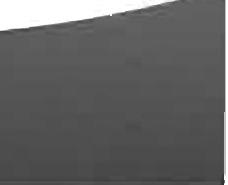
Mr. Edwards' room on the Ground Floor was made available to Mr. Muir, the new clerk, and the Registrar has been temporarily occupying two rooms at the rear of the Ground Floor. The new office accommodation will be most useful - and it is clear that additional staff is required for Barristers Chambers Ltd and for the Bar Council.
5. The next matter to be mentioned can be classified as a matter of Bar practice. On the 1st March 1973, a new clerk, Mr. H. D. Muir, commenced to operate in Owen Dixon Chambers. The number of barristers' clerks was thereby increased to six. This was preceded by the adoption by the Bar Council in November 1972 of a set of principles with respect to the clerking system.
There is now a definite framework for the control and development of the clerking system. The system is an important element in the operation of the Bar, but it should be recorded that the Bar Council found its work on this subject matter by far the most difficult of all its tasks during the year.
6. Another change in Bar practice has been the participation by members of the Bar in newly established legal referral centres. The first of these was established at Fitzroy early in 1973. The initiative in setting up the centre came from a number of young practitioners, including junior members of the Bar. The Bar Council made a special ruling which modified the general rules as to practice to enable members of the Bar to participate in the work of legal referral services.

7 There is yet another change whidlhas been adopted but which is not to come into operation unti11974. This is constituted by the new rules to reading. The basic points of the new rules are that a man will be required to spend two months in attendance upon his master before he actually commences reading , that he will be required to attend a course of lectures organized by the Bar Council and that the reading fee will be abolished. The aim of the new rules is to maintain and improve the standard of professional competence and conduct of members of the Bar.
8. Some of the changes in facilities have already been mentioned, but the most important change has been with respect to the provision of accommodation for counsel. The first Floor and the Twelfth Floor of Owen Dixon Chambers have now been converted to Chambers for Counsel. This has provided for about sixty new rooms, all of excellent standard. The result is that at present accommodation can be provided for counsel completing their reading.
In 1973, Tait Chambers was sold. The decision to sell was taken because it will become impractical to retain the building as accommodation for 36, because the site was not a satisfactory site for redevelopment, because the offer was an attractive one and because possession of the building will be retained until at least 1st June 1975.

Accommodation for the future needs of the Bar is a major problem. A strong Accommodation Committee has been considedng the matter dUIing the year and its activities are reported upon elsewhere. All that need be said here is that it is accepted that the Bar (that is the Bar Council) carries the responsibility of taking steps to provide accommodation as lhe need for it grows.





9. 1972-1973 has also been Significant respect to the partiCipation by the Bar Council in a number of public issues and in the way in which these matters have been approached. The extent to which the Bar Council participates and takes stand upon public issues is one which reqUires a considerable sense of judgment, but there have been a number of issues on which it has been appropriate for the Bar to take action.
First, there was the matter of prisoners' legal rights. The Committee to which reference was made in the last Annual Report has reported , and its reportllas been adopted. The recommendations for reform in the report have been favourably received by the Victorian Government and the Press The reporl is being published With the aid of assistance from the Victoria Law Foundation.





" Otherwise the issues that have been of major importance have been legal aid, matrimonial causes and Legal Aid is still under consideration. In matrimonial causes the Bar Council has supported the IPrlnciple of dissoluUon on the sole ground the marriage has irretrievably broken down for a period of We ve months immediat ely prior to the issue of Ule petition.
la In V.ictoria, the Motor Accidents Act 1973 has been enacted. The Bar and the Law Institute of Victoria ycd active and creative roles in this work of legaJ social reform. The Act provides a scheme of compensation r motor car accident victims, independent of fault, and it is believed that the scheme is both fair and practicable.

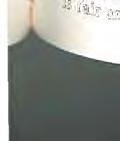
COn 1.1l 1973, the Commonwealth Government set up the National Rehabilitation and Compensation Scheme (CColmlttee of Inquiry. The Bar Council has been very active in endeavouring to ensure that the Committee f&h:nnlends that any scheme should be complementary to the common law system, and that common law a not be abrogated without the feasibility and operation of a no-fault system being fairly tested over is fair o dO f time nnd further that the scheme should be a reasonable compromise providing compensation which an practicable.
What needs to be emphasised is the way in which the Bar Council has proceeded when it has decided to intervene on a public issue. The Bar Council and the Council of the Law Institute of Victoria have worked together on these matters, as both bodies believe that where possible the views that should be presented should be those of the Victorian legal profession and not just those of the Bar or the solicitors. To this end, the two bodies have set up a number of Joint StandingCommittees. As well as Committees dealing with legal aid and 'no-fault liability' there are committees on Supreme Court and County Court practice.
10. In general, it is believed that it can be said that in 1972-73 the outlook of the Bar and the Bar Council has been a progressive one. The basic theme has been to tackle Bar problems and find a solution to them in a practical way and to endeavour to see that the Bar fulftlled a public function by taking a lead on issues which affected the law. In so far as the Bar Council has intervened in such issues, its object has been to do this so that the Bar acted as one part of the legal profession in Victoria and so that what was done did not prejudice the essential feature of the Bar as a body of individual barristers who only have views expressed on their behalf where this can be done without infringing upon the right of every man to his own opinion and without embarrassing counsel in the performance of his professional duties.
The "Bar News" was published in September 1972, March and August 1973. The last two issues were printed and not roneoed and were circulated more widely. By this publication, matters of interest to members of the Bar and others can be communicated. It is intended to continue to publish the "Bar News" some three or four times each year. The Editors have been McGarvie Q.C. and Heerey and they are to be congratulated on the quality of the issues they have produced.
of the gal Year

On the 1st February 1973, to mark the opening of the Legal Year religious services were held in St. Paul's Cathedral, st. Patrick's Cathedral and the East Melbourne Synagogue. At st. Paul's Cathedral, the lessons were read by Messrs. W. O. Harris Q.C. (Chairman of the Bar Council) and J. Cain (President of the Law Institute of Victoria). The venerable J. B. Moroney, Archdeacon of Malvern, delivered the sermon.
At St. Patrick's Cathedral, the Red Mass was celebrated by His Eminence the Archbishop of Melbourne, Cardinal J. R. Knox, D.D., J.C.D. The Occasional Sermon was preached by the Reverend Father L. Fitzgerald O.P. of Mannix College.
At the East Melbourne Synagogue the service was conducted by members of the profession in conjunction with the Reverend E. Kowadlo. The address was delivered by Rabbi M. Honig, B.A., M. Phil.

The Bar Dinner was held on Saturday the 5th May 1973 in the Common Room Owen Dixon Chambers. The guests of honour were the Honourable Mr. Justice Smith , the Honourable Sir Douglas Little, the Honourable Mr. Justice Norris, the Honourable Mr. Justice Dunn, the Honourable Mr. Justice Murphy, His Honour Judge Stabey, HIS Honour Judge McNab and His Honour Judge Coleman.

The now well-established practice of holding late afternoon social gatherings has continued to prove successful. Efforts have been made to extend invitations so as to have as many members of the bar as possible attend at least one function during the year. Those entertained from time to time Chairman and members the Bar included the Chief Justice and Justices of the Court , the Chief Justice and Judges of the Supreme Court, Federal Judges, Judges of the County Court, Lord Gardiner, the President of Council President , Chairman and members of the Council of the Law Institute of Vidoo a and also members of kindred associations.








The Cup Eve dinner dance was held on the 6th November 1972 and the Bar. as Christmas Cocktail Party was held on the 19th December 1972. Each functIOn W well attended. ;


On the 13th April 1973 the Council entertained at dinner the Presidents of the Country Law Association as well as the President, Chairman and Officers of the Law Institute of Victoria.
On the 29th June 1973 the Mid-year dining-in night was lleld and for the third successive year a review produced by John Coldrey was performed during the evening by members of the Bar. Once again the function was highly successful.
On the 14th July 1973 members of the Bar combined with members of the Law Institute of Victoria to hold a dinner in honour of Lord and Lady Widgery and Judge and Mrs. Murrah.
The catering for all of these functions was attended to by Mr. & Mrs. Ungar who maintained their usual high standards.


The annual Cricket Malch between the Bar and Solicitors was played Oil tJle 19th December 19 72 Alb er t Ground. The solicitors again and so retained the Sir Henry Winneke Cup. On the same the annual Tennis Match was held between the Bar Solicitors and which resulted in will the Solicitors. Mr. Brian Thomson Q.C., organised the tenn is match and Mr . Barry Dove the c ricket match.













On the 19th April 1973, the annual GolrMatch between the Bar and Solicitors was played the Metl'opolitan Club. This match was won by the Bench and Bar , and so iI E dmund Herring Shield passed from the Law Institute into Ute hands of the Bench and Bar. match was followed by a pleasant enj yable dinner in the CLub House.










On the 29th June 1973 , the annua.l Golf Match between the Bench and Bar and the Combined Services was played at Ule Roya l Melbourne Golf Club. The Emche Cup was won by the Bench and Bar with the Combined Services retaining the Macfarlane Cup. The Council is ind ebte d to Cashmore who organised these golf matches on behalf of the Ben ch and Bar.

The new rules regarding counsel broadcasting Or givlng lectures and addresses (which ca rne into operation on the 8th November 1972) have functioned well. was a number of occasions when counsel appeared on television or gave addresses, notifi cat ion being given to Secretary of the Bar Council in accordance with th e mles. There was no occasion upon which it was necessary for counsel to seek permission to broadcast or give an address, as was previously required.





The Ethics Committee and individual members of the committee gave guidan.ce to counsel on a large number of occasions during the year. The Gommittee dealt with five complaints concerning the conduct of counsel. The slimmary procedure under the new diSCiplinary rules was used in one of thesc instances.



The establishment of Legal Schemes other und er the Legal Aid Act 1969 led to the adoption of the fOllOWing ruling by the Bar Council. on the 8th March 19 73.
"Rules for the participation of co uns el tn Legal Aid Schemes other than under the Legal Aid Act 1969.

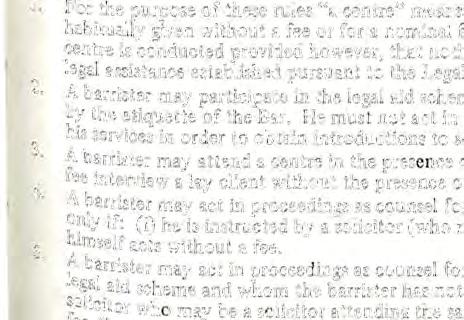
I. For th e purpose of thcse rll les "a entre" means any place (other than chambers) where legal advice is nominal fee and "legal aid scheme" means a scheme under which a nothing in these rules shall apply to the scheme for providing Legal Aid Act 1969.

scheme by providing his services without fee but remains bound in such a way as to give rise to any suspicion that he is giving sol.icitors or for financial gain.

presence or absen ce of a solicitor or solicitor's clerk and may without a of an instructing solicitor or a solicitor's clerk.
for a lay client whom he has himself advised at a centre, but (who may be a solicitor working at the same centre); and Oi) he

for a lay client WiUl or without fee, who is participating in a not himself advised a centre provided he is instructed by a same centre. A barrister must in no circumstances accept a e Ireet from the lay client.
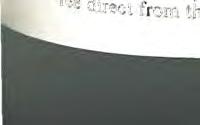

6. Unless and until instructed by a solicitor a barrister must interview clients participating in a legal aid scheme only at a centre and must not represent himself to be more than a legal adviser at the centre concerned.
7. A barrister may draft letters on behalf of clients participating in a legal aid scheme for signature by them Or on behalf of the legal aid scheme and, in the latter case, may sign such letters in the name of and on behalf of the legal aid scheme.
8. A barrister may not negotiate orially with third parties with the object of arranging a settlement with a client participating in a legal aid scheme save where he is acting as counsel for such client.
9. A barrister may allow his name to be included on a list of barristers willing to advise at a centre or to act as counsel without fee pursuant to instructions given by a solicitor participating in a legal aid scheme
10. A barrister may show to a client participating in a legal aid scheme a list of solicitors participating in the same scheme provided that the client is left to choose his solicitor from those on the list who deal with the type of work in question.
11. A barrister must not participate in a legal aid scheme unless there is in charge of the scheme a responsible person other than a barrister or a group of responsible persons which includes persons other than barristers.
12. A non-practising barrister may advise at a centre but must not represent clients in the event of litigation."
Also on the 8th March, 1973 the Council adopted the following new reading rules :-
1. That as from 1st January 1974-
(a) the ruling of the Bar Council made on the 16th July 1972 with respect to reading be revoked;
(b)
(c)
1. the present practice whereby an applicant to sign the Roll of Counsel is permitted to commence practice as counsel as soon as he has made application to sign the Roll be discontinued; the following rules with respect to reading be adopted as rulings of the Bar Council:
Subject to Rule 2 of these Rules an applicant to sign the Roll of Counsel will not be permitted to sign the Roll of Counsel unless -
(i) he has made application to the Bar Council for permission to sign the Roll and the Bar Council has resolved that he be permitted to commence attendance as a pupil in the chambers of a member of Counsel on the Roll of not less than seven years' standing;
(ii) he has thereafter been in daily attendance as a pupil in such chambers for not less than two months during which period he has not undertaken any legal work other than as a pupil to his master and has not engaged in any activity which a member of counsel on the Roll would not be at liberty to engage in;
(iii) he has undertaken to read as a pupil in the chambers of his master for a period of at least four months from the date on which he shall sign the Roll;
(iv) he declares that he has read such material as the Bar Council shall for the time being have prescribed; and
(v) he has undertaken to attend a course oflectures as prescribed by the Bar Council.
2. The Bar Council may dispense with all or any of the requirements of Rule 1 of these Rules(i) if the applicant has practised exclusively as Counsel in any other State or Territory of the Commonwealth for a period of more than one year;
(ii) if the Council is of the opinion that the applicant is unable to arrange for such pupillage; or (iii) if the Council for any other reason thinks it proper in the circumstances to make such dispensation.
3. No fee shall be payable by any pupil to his master in respect of pupillage.
(2) That the substance of resolution (1) be communicated to the Bar and to the Clerks and to the Law Institute of Victoria with a request that it be published by the Law Institute in the Law Institute Journal.
(3) That a Reading Committee be established by the Bar Council as a standing committee for the purpose of: (a) compiling and distributing instructional material concerning reading; (b) arranging for the conduct of lectures to be attended by readers; and (c) generally supervising the practice of reading in chambers."
The Chairman and two other members of the Ethics Committee each delivered a lecture to the Bar on conduct, ethics and etiquette.


rractice in Ballarat concerning trial
counsel as Chairman Of Town Planninr APpeals Tribuna
Permission by the Council was given for a member of the Bar to practise as such at Ballarat.
Counsel was refused permission to assist an author writing a book about a trial in which he had recently appeared.
The Council on the 17th April, 1973 adopted the following resolution:-
(1) The Bar Council is of the view that each Town Planning Appeal Tribunal should have as its chairman a person holding a full time appointment as such.
(2) Subject to the foregoing, it is of the view that there is no impropriety in a barrister acting as a relief chairman of the Town Planning Appeals Tribunal from time to time provided:-
(a) There is a panel of barristers available to act as relief chairmen which is of sufficient size to ensure that the appointment of anyone is not upon a regular or frequent basis;
(b) appointment as a relief chairman is offered to members of the panel in strict rotation; and
(c) the appointment of relief chairmen is made to fulfil a temporary need only.
Practising without a clerk
A member of the Bar was refused permission to practise without employing one of the existing clerks.


As most of the members of the Bar will be aware, the Law Reform Committee has in the last two years adopted a different mode of operation from that previously followed. Instead of the Committee members themselves attempting to handle all the various matters referred to it, the Committee operates principally by appointing an ad hoc sub-committee of members of the Bar to consider each matter.
The reason for this change is twofold - first, to enable a much greater number of matters to be dealt with than would be the case if the Committee had to investigate all matters for itself; and, secondly, to bring Lo bear on matters of law reform the varied talents and energies of a significant number members of the Bar.





The Committee and the Bar Council wish to acknowledge the very willing and able assistance which they have received from those who have served on the various sub-committees.

It was realised when this system was introduced that in the course of practice and in informal discussion between thems elves counse l are apt to light upon many areas of the law where reform appears desirable, and it was hoped that, with the increased capacity Council to consider these matters , members of the Bar would seize the opportunity to bring appropriate matters to the attention of the Law Reform Committee.


AlUlough a number of matters has been sO referred , it is doubted whether full use is being made of the machinery wh.ich has been set up and it is desired to encourage the Bar to refer to the Law Reform Committee all matters which any think may usefully considered by it.


Al th e same time aU cou nsel are encouraged to let the Law Reform Committee know if they are willing to serve on ad hoc s ub-committees, and to indicate the general areas within which their interests lie.

During the last year reports of sub-commHtees have been received on the following matters -
l. Reciprocity of admission to practice as between the various States and Territories and New Zealand.
2. The administration of winding-up of companies - dealing with a number of provisions of the Uniform Companies Act especially in relation to investigatory procedures.
3. The recognition and enforcement of awards made in arbitration proceedings conducted abroad.
4. The question of accession to and ratification of the Hague Convention on the service abroad of jUdicial and extra-judicial documents in civil and commercial matters.n a number of cases the reports of sub-committees have been forwarded to the Law Council of Australia.
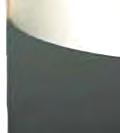
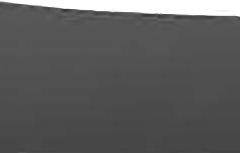
The Committee also received the report of a sub-committee appointed to consider questions as to the date of commencement of Victorian Statutes and Statutory Rules, with a view to avoiding the situation where legislation and regulations can come into force before their distribution to members of the profession. This report had led the Law Reform Committee to make further enquiries and investigations and it is hoped that the Council will shortly be able to advise the Bar as to the availability of adequate distribution services.
Matters currently the subject of investigation by sub-committees include -
(a) The law relating to unincorporated associations. .
(b) The rights of illegitimate children.
(c) The procedure in cases of contempt of court (including the desirability of introducing a right of appeal.)
I(d) Procedural aspects of orders to review, and the desirability of an alternative right of appeal in civil •i cases in Magistrates' Courts. I
The Council also appointed a sub-committee to consider the proposed repeal of the reasonable precautions provisions of the Health Act (Section 291), and as a result a member of the sub-committee attended before the Statute Law Revision Committee to oppose the repeal.
The Council appointed three members of the Bar to a joint committee with the Law Institute to consider and report on compulsory blood alcohol tests of road accident casualties. The joint committee held discussions with Road Trauma Committee of the Royal Australasian College of Surgeons. The report of the joint committee was adopted by the Bar Council and submitted to the Chief Secretary.
The Law Reform Committee has under consideration the desirability of retention of the present mandatory penalties prescribed in the case of numerous traffic offences.
The Council has during the year given attention to a number of other matters of law reform including a suggested lawyer referral service proposed by the Law Council of Australia, and aspects of the law relating to Private Street Construction Schemes.
The Council received a report from the Matrimonial Causes Committee which was adopted and made available to the Secretary of the Senate Committee, the Federal Attorney-General and the Law Council of Australia.
The subject of the Commonwealth enquiry into a National Rehabilitation and Compensation Scheme, a matter which has closely concerned the Council during the past year, is separately dealt with elsewhere in this Report.
The Victorian Bar Council has again arranged for a series of lectures designed primarily to provide guidance for readers. The lectures have followed a similar format to that adopted last year, and have provided excellent material for those attending.
The lectures arranged for this year were:
Ethics
Ethics
Relations between Barristers and Solicitors
Procedure - Practical Aspects of Originating and other
Process
Procedure - Pleadings
Procedure - Practical Aspects of Interrogatories, Answers to Interrogatories and Advice on evidence
Trial - Opening, Final Address, Making a submission
Trial - Examination and cross-examination
Criminal Trial
Mr. D. Dawson Q.C.
Mr. D. P. Whelan Q.C.
Mr. R. K. Fullagar Q.C.
Me. W. F. Ormiston
Mr. L. Voumard Q.C.
Me. J. A. Gobbo Q.C.
Mr. E. D. Lloyd Q.C.
Mr. N. R. McPhee Q.C.
Mr. J. M. Lazarus
The Bar Council once again expresses its appreciation to the lecturers for the time and effort given by them during the year.



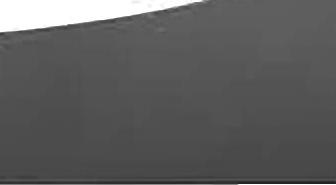
1. At a meeting held on the 8th of March, 1973 the Bar Council appointed a sub-committee to deal with the whole of the new and future accommodation for the Bar, including the practical work of finding and negotiating for such accommodation.
2. The Committee sees its job as follows :-
(a) to estimate the future demand for accommodation,
(b) to suggest how that demand is to be met,
(c) to consider how the cost of future accommodation is to be borne, (d) to carry out the practical work of acquiring and to consider the design and layout of any new building.
3. For the purpose of our early investigations we have taken the annual increase for the next few years to be at the rate of 30 per annum.
4. The Committee feels that it should provide for the accommodation of the Bar for the next 10 years. It takes that period as being the forseeable future At present there are 428 counsel actually in practice and it is estimated that by 1984 the number will have increased to about 800.


5. Tait Chambers will not be available for accommodation after the 1st of June, 1975. Assuming no further accommodation obtained and none (including Henderson House) lost before that date the following table sets out the estimated demand for short term accommodation. The table is based upon the assumption that the experience for 1971/1972 will be repeated.
Date finishing
(plus 36 in Tait Chambers)

6. The above figures have been used as working figures for the Committee. It is proposed to make a more accurate estimate of long-term demand by sending a questionaire to Counsel and also to students now studying law.


7 It is estimated that if a building were put up for 350 barristers it would cost about $6 million. Economies of are such that if a building were put up for 800 barristers the cost would be about $10 million. These are wild guesses made merely to assist preliminary thinking. However they have been made after discussion Wi th developers and others who might be thought in a position to express an opinion.
8. Over the next five years estimated funds available to the Bar are :-
(a) if Owen Dixon Chambers is sold $5.2 million, (b) if Owen Dixon Chambers is not sold but mortgaged to the maximum $3.2 million.

9 The Bar as a whole undoubtedly has a large potential for producing investable funds. The Committee that the requirement that tenants subscribe or agree to subscribe a certain amount to Bar funds is IJtpopuJar The principal cause for complaint seems to be the unattractiveness of the investment and the circumthat It Is in the early years of his career when liquid funds are at a minimum that counsel is asked to .OVl e these funds.



The rate of interest offered is now a very uncommercial rate. One could not now issue new debentures at It rate for future subscription. That would obviously be unfair to those who have subscribed in the past. g t\be feasibLe that existing debentures be reissued and that all new debentures be issued on terms that the e at a rateftxed from time by t he Board of Directors of Barristers Chambers Ltd. and not less cl % per It is suggested that in general the minimum rate should be 1% higher than the current rate of be tho asshPllbhc compa.ny long-term debentures. This would of course mean an increase in rental but it might well ug t mOre equitable amongst the members of the Bar as a whole.

II. A further proposal which is put forward is that there be established a 2nd Bar Superannuation Fund. This fund would be in all respects the same as the present Fund save that it would be the expressed policy of the Fund to invest the whole Fund (less the 30 per cent required to be invested in public securities) in Barristers Chambers Ltd.
It is thought that there would be many barristers willing to contribute to a 2nd superannuation fund of the kind suggested. In addition the contributors to such a Fund could count towards the fixed subscription required from tenants. This would make the whole funding requirement more attractive to the very junior bar who cannot afford to provide both substantial non deductible contributions to Bar funds and contributions to superannuation funds so as to gain one of the few substantial tax benefits available to barristers.
12. Rents now charged are low by commercial standards. If the Bar provides accommodation for all members of the Bar it will be necessary in the near futUre to lease premises at rents substantially higher than those paid in Owen Dixon Chambers. An increase in the rate of interest on debentures will also result in an increase in rentals. It may be thought that the benefits of ownership should be directed to those who have made the ownership possible, that is those who have contributed and are contributing to Bar funds by way of debentures and contributions through the Superannuation Fund.
13. In so far as it becomes necessary to raise money for a building project by way of mortgage enquiries reveal that there is not likely to be much difficulty about raising the required funds at competitive rates of interest.
14. The above discussion has proceeded upon the assumption that the Bar will want to own its own home. There is little doubt that a number of institutional developers would be happy to build to our specifications if the Bar agreed to lease the whole or a large part of the building for a substantial period of time. It might even be possible for the Bar to have a substantial part (up to one halt) of the equity in any such building. The lease could be upon sUitably cautious terms (for instance a lease for 30 years by six terms of five years and with provision for the rent to be determined at a period two to three years in advance of the renewal of the lease ).However a developer would only engage in the exercise in the interest of making a profit and capital appreciation which would almost inevitably take place over the years would accrue not to the Bar t but to an outside interest.
IS. The Committee is of the opinion that any site for a new building must be in the area bounded by the west side of Queen Street, the south side of La Trobe Street, the east side of King Street and the north side of Bourke Street. It may be that even parts of that area are further from the courts than desirable.
16. Within the area described there are very few sites available for new building. Of the available sites some are in the ownership of the Commonwealth or State Government and the others are already owned by private developers. Enquiries made with a view either to acquiring from the Crown a suitable site or entering into a building project in conjunction with the Crown have not been very promising. On the other hand there seems a stronger likelihood that it will be possible to obtain a substantial equity in a building project on one of the privately owned sites even if it is unlikely (as seems the case) that we could become the sole owner of the freehold.
17. One of the difficulties in coming to any decision in regard to sites is that the question is related to other questions e.g. is it intended that the whole Bar is to be housed in one building or that there should be a building in addition to Owen Dixon Chambers, is it intended to rebuild on the present site of Owen Dixon Chambers, or to sell Owen Dixon Chambers and acquire a new site.
The answers to the last two questions themselves depend upon what sites are available and at what price finance is available.
In deciding whether or not to have a building additional to Owen Dixon Chambers some of the relevant considerations are ;-
(a) Will counsel be persuaded to move from Owen Dixon Chambers to the new (additional) building?
, (b) If not will the only tenants of the new building be the more junior counsel?
(c) Will the clerks in one building be employed in the other building?
(d) As the new building will certainly be of a much better standard then Owen Dixon Chambers, will the rent be the same in both buildings?
(e) As one new building for the whole Bar will result in substantial economies of scale, it will be easier to finance and cheaper to manage.



18. This is a question which does not arise until a late stage of planning but the following matters have already been canvassed:-
(a) With the growth in the Bar the management of its buildings will probably be beyond the resources of the Registrar and Barri Chambers Ltd. will have to consider retaining either a full-time building manager or the management services of one of the property companies.

(b) The experience obtained in Owen Dixon Chambers will lead to improved facilities in the new building by way of libraries, accommodation for clerks, typing pools, etc.
(c) If a new building results in substantially increased rents consideration should be given to allowing counsel in their first two years at the Bar to share chambers with other counsel, of the same standing.
The question of design is a matter which will require the views of the Bar to be canvassed at an appropriate time. It is proposed to send out a questionaire.
i9. There is an urgent need to come to a decision about short-term accommodation It is expected that Barristers Chambers Ltd. will in the near future acquire a long lease of suitable premises for sub-letting to counsel.
20. The matter which will have to be decided by the Committee in the immediate future is the likely demand for accommodation in the next 10 years. This will mean sending out as soon as possible the questionaires referred to in paragraph 7.
21. Once the Committee has come to a decision about demand it will then have to decide 2 important questions :-
(a) is an estimated Bar of about 800 to be housed in one building or 2 buildings?
(b) should the Committee look for new or additional premises on the basis that the Bar will lease them or that the Bar will own them?
The Committee feels that the answers to the last 2 mentioned questions will need the approval of the Bar as a whole, because those are the two questions upon which all planning must depend and that planning cannot be successful unless it has the support of a substantial majority of the Bar.


Slnce the last Annual Report, the Sar Library has acquired a set of Holdsworth's History of English Law has maintained strict programme repair and ' servicing of subscriber sets of reports and other publications. Ronco kick-steps have als been purchased in o rd er to faciJitate access to high shelves. The book stacks have also been rearraJlg segregate the Australian section from other books and journals.





Gifts of books are gratefully acknowledged from the following donors: the Han. Mr. Justice Anderson, John D. Byrne, the Chief Parliamentary Counsel, Mr. Michael Shatin, Sir James Tait, Q.C., the Hon. Sir Ccra!d Thesiger and the Victo rian Law Foundation. The Librarian of the Supreme Court, Mr. G. Alcorn has the Library by advice and the gift of several unbound parts of law reports which aids completion volumes for binding.















bl The obstinate refusal of Some library users to replace books in the shelves after use continues to be a major em. This has prompted the Library Committee to recommend to the Bar Council t hat adequate paid staJlce shOuld be e ngage d to relieve commitment of members of the Committee who , hitherto, have a month on annually in order to the library tidy; such assistaJ1Ce hou ld also replace the work ISS Lee Carmody who has as should here be acknowledged, attended to the placing of current parts. .further has so far been made in acqu iring sets of Lloyd's List and Reports ?f .Patent v Hch are shU reqUlrcd and the purchase of which has been approved by Bamsters Chambers Limited. should be emphasised that it is the Obligation of a library user to replace books after use.
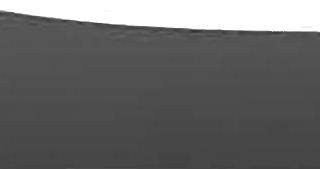
The following are extracts from the report of the Legal Aid Committee for the year ended 30th June 1973.
Committee
Applications
Financial
Messrs. R. Brooking, Q.C., H. Berkeley, Q.C., B. Beach, Q.C., A. C. King, Q.C., W. E. Paterson, Q.C., P. Furness and D. Kendall served as appointees of the Victorian Bar Council under Section 7 of the Legal Aid act 1969.

In contrast with the large increase of matters dealt with in each of the years ending 30th June 1971 and 30th June 1972 over the number dealt with in the preceding year, the number of applications considered in the year ending 30th June 1973 , namely 13,551, constituted only a small increase over the number dealt with in the year ending 30th June 1972 and there was a small decrease in the number of applications approved for assistance. Schedule "A" of this report gives some statistical details of the above applications and of the manner in which they were dealt with.







There was a substantiaJ inc rease in the Committee's income and expenditure, details of which are set out in Schedule "B" of this report. As a result of amendment to the Legal Profession Practice (Amendment) Act 1972 Wllich was referred to in last year's report, the Committee is now receiving one half of surplus monies in the Solicitors' Guarantee Fund. The sum of $745,000 was received from this source and it is anticipated that a similar amount received in 1973/74. Collections from costs recovered and contributions assisted persons also increased significantly, due to a re-organisation of the Committee's Accounts Department and the employment of a qualified Accountant and a Credit Control Officer. It is anticipated that revenue from these sources will continue to increase.




In the light of a contribution of $75,0 00 made by Ule Victorian Treasury to the Legal Aid Fund in early 19 72, a request bution of $150,000 from the Treasury to lhe Legal Aid Fund was made to the Victorian Goverrunent prior p reparation of the budget for 1972/73 . The Committee regrets that the Budget, announced, did not include anyaj!propriatioll for legal aid, and in Decembcr, the Committee was advised thal • the Treasurer cons iders that the legal aid operated by the Committee should be financed from the monies flowing from the Solicitors' Guarantee Fund".





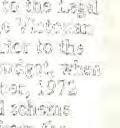

The above sum of $75,000 has been the sole Government contribution to the Legal Aid und over the las hree years, but having regard to a reference to legal aid made by the Premier Mr. Hamer, ill his policy speech before the elections, Corrul1illee is optimistiC thal the Victorian Government will fUld abJe to assist it financially in the futu re.





The restrictions which were imposed, with reluctance, by the Committee in June 1972 were :-

(1) appli ca tions for aid to petition for divorce would not be granted unless a lump sum payment of $100.00 was made, in addition to any other requirem ertt, su bject to waiver in cases of hardship and urgency; and
(2) solicitors were to withhold action on current divorce assignments until 1st October 1972 unless a date had been fixed for hearing or there was some urgency.
In addition a less liberal attitude towards the granting or withholding of assistance aJld ill the terms on which assistance was granted was continued for the greater part of year. In October 1972 action on divorce assignments was allowed to proceed but other restri ctions were persisted with until, in view of the promise of Commollwealth financial assistance for matters in the ma trimoniaJ causes jurisdiction, they were relaxed in late June 1973. It is the Committee's vi ew that if t hese restrictions had been imposed and enforced. the Legal Aid Fund would not have remained solvenl.



The Committee, mindful of the fact that in the year 1972/3 it was obliged to pay the considerable number of cases assisted the previous year, closely reviewed tIles fmanciaJ position each month. As a result of this tight contro l, a very small surp resulted.

For a break down of the Legal Aid dollar see Schedule "C".


..



In accordance with Section 11 (3) of the Legal Aid Act 1969 all accounts for .professional charges accepted by the Committee are reduced by 20%. Accounts to the value of $1,110 471 were certified payment , and as the sum of $888,377 was paid to the profession, participating solicitors and barristers contributed, without charge, services to the value of $222,094. Details of the above matters are set out in Schedule "B". Special problems have been dealt with by a costs to the members of which the Commiltee acknowledges its debt, and as in previous years the Committee has relied heavily on its Costs Consultant, Mr. John Ahern.
To keep the profession informed of the Committee's activities, the Secretary has during the year addressed meetings of the North Eastern Law Association , the Western District Law ASSOCiation, the Northern Suburban Solicitors Group and the Southern Suburban Solicitors Group. In recent months, a small advertisement giving details of the Committee's services has been placed in the metropolitan daily press at fortnightly intervals.
Close liaison has been maintained with the Victorian Bar Council, the Law institute of Victoria and official legal aid organizations in other States. In addition the Secretary holds himself available to inform other interested bodies of the Committee's work.
Arrangements were made with the Director of Social Welfare to streamline the provision of legal aid for unmarried mothers in affiliation proceedings, and also to provide aid in civil proceedings involving wards of the State .
Considerable assistance is now provided to the Public Trustee as the legal personal representative of persons whose affairs are under his control, and who are without means to undertake litigation.


NOTE:
1971/72
STATISTICS FOR YEAR ENDED 30/6/73
13016 Total applications
1972/73
Dealt with by Secretary and/or staff 13551 4642 without completion of application for 5531 8374 Referred to COIpmittee 8020
Applications not dealt with or deferred as at 30th June, 1972 , but subsequently 333 dealt with by the Committee 363 8707 8383
7086 Assistance approved 6721
1258 Rejected - 409) 1268 Withdrawn - 859)
Not dealt with or deferred as at 363 30th June, 1973. 394 8707 8383
COMPARATIVE TABLE OF STATISTICS TOTAL DEALT REFERRED APPROVED WITH BY TO COMMITTEE COMMITTEE STAFF


LEGAL AID COMMITTEE - LEGAL AID FUND
STATEMENT OF REVENUE AND EXPENDITURE FOR THE YEAR ENDED 30/6/73.
REVENUE
Balance brought forward at 1st July Costs recouped and contributions by assisted persons Payments from Solicitors Guarantee Fund Payments from Appeal Costs Fund
Bank Interest
Treasury Contribution
ExPENDITURE
Administration Costs
Salaries
Travelling Expenses
Office Requisites
Books and Incidentals
Post and 'Phone
Electricity
Rent
Su perannuation
Furniture & Fittings
Disbursements
to Assisted Persons Payments to Legal Profession (see below) Balance carried forward at 30th June




$1,325,925





(d) Donation to Undergraduates Centenary Committee of Melbourne University.

(e) Photographic Memorial of the Late Sir Owen Dixon.
(f) Functions and Entertainment (against which $18.75 is owing)


For Catering, Hiring etc. To

(a) 500 OrdinaIY Shares of $2 each in BaHisters' Chambers Limited

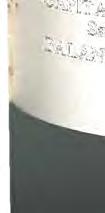
b) Short term deposit with Group Holdings Limited 5,000.00 CAPIT;'\L RECELPTS 6,000.00

1. Member Debtors:
(a) For Subscriptions:
(i) Prior to 31/8/72 (ii) Current year
(b) For Functions:
(i) Prior to 31/8/72 (ii) Current year
2. Investments at cost:
(a) 7,650 Ordinary Shares of $2 each in Barristers' Chambers Limited
(b) Commonwealth Bonds
(c) Short term deposit with Group Holdings Limited
3. Copies (182) "A Multitude of Counsellors"
4. Liquor at cost
5. Portraits at cost
6. Gifts - Candelabra etc. insured for
1,632.58 22,300.00 1,154.80 3 , 128.00 3,495.00 1,275.00 $32,985.38
